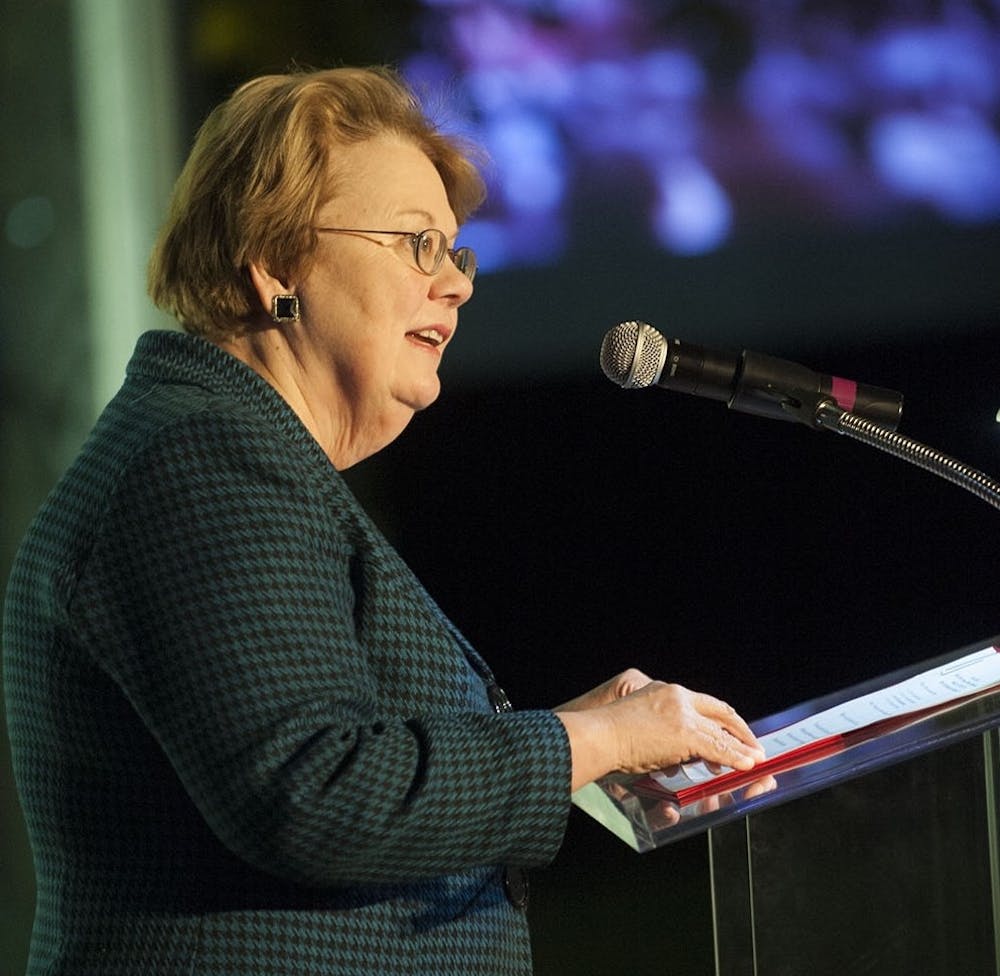The University of Virginia Special Committee on the Nomination of a President met in an open and closed session Monday to discuss desired qualities of the next University president who will replace current University President Teresa Sullivan when she steps down in 2018.
Margaret Grundy, chief of staff to the vice president and chief student affairs officer, a member of a sub-committee which worked to create a five multiple-choice option survey for the University about the next president, addressed the survey early in the meeting. She said it has had a high engagement rate, with 2,300 responses to date.
Rector William H. Goodwin Jr. then moved to a discussion with former University President John Casteen III regarding characteristics the next president should embody. Casteen served as president from 1990 to 2010.
Casteen began by listing some of the key values and abilities he said he believes the ideal candidate should have and made it clear that he wanted no gender or racial bias involved when choosing the next president.
“I don’t want any rule saying men or women are better than the other,” Casteen said.
Casteen also said while the University is not exactly a company, the next president must be “business savvy.” Then, he said that there is not a singular type of background for which the committee should be searching for.
“Successful presidents have all kinds of backgrounds,” Casteen said. “Those who succeed earliest are the most durable.”
When the floor opened for questions, John Isaacson, a search consultant for the special committee, asked whether or not non-academic background candidates should be considered.
Casteen addressed the question by saying presidents can come from either side of the line.
“I know one has to be capable intellectually and spiritually of grasping [the University’s] rough spots and its many spectacular successes,” Casteen said.
Casteen also said one’s ability to keep up with the physical pace of the position are important things to consider when looking at a candidate.
“I think you need to hire someone who is going to engage with that kind of workload,” Casteen said. “There are many failed presidents that came straight out the academy.”
Scott Beardsley, Dean of the Darden School, followed the Q&A session with his research on non-traditional university presidents in comparison to traditional presidents, who are individuals that had previously received tenure.
His research showed a positive correlation between higher rankings and the traditional university presidents.
“Most of the institutions that had non-traditional presidents were struggling financially,” Fried said.
Beardsley emphasized that the debate between choosing a traditional or non-traditional leader was not the framework through which the search should be approached in this circumstance.
“We’re not looking for any president, we’re looking for the president.” Goodwin said.
The meeting then went to a closed session during which Goodwin said they would be discussing potential candidates.
Colleen Schinderle contributed to the reporting of this article.







